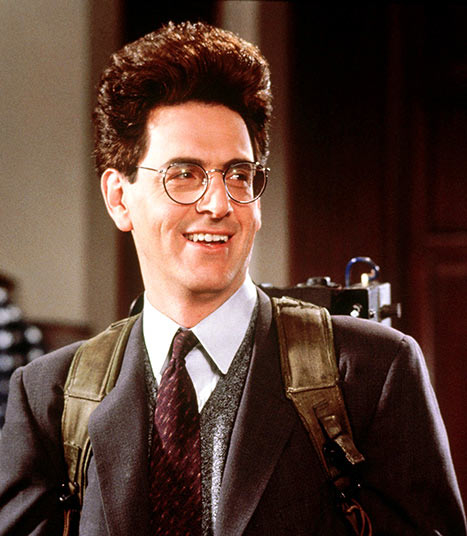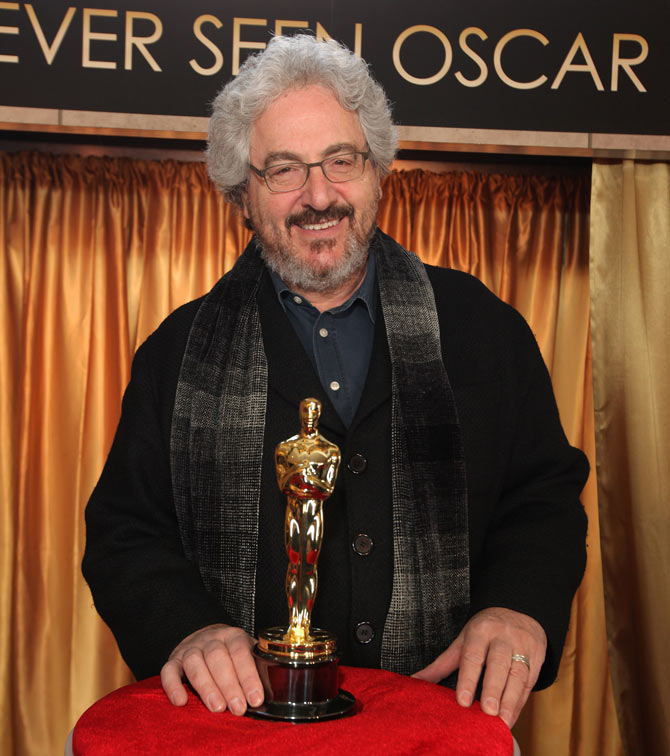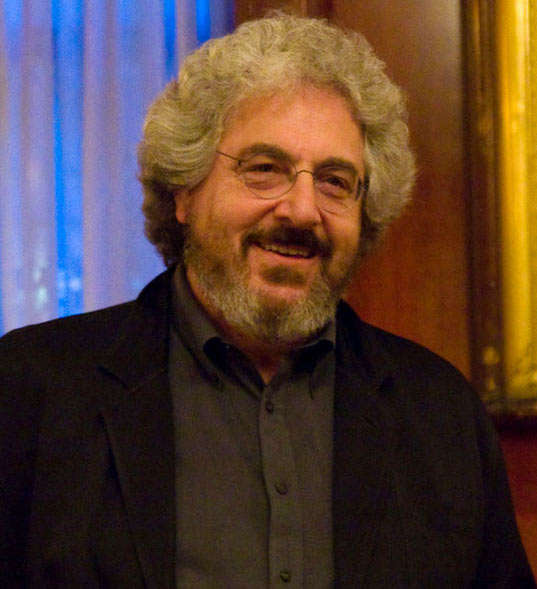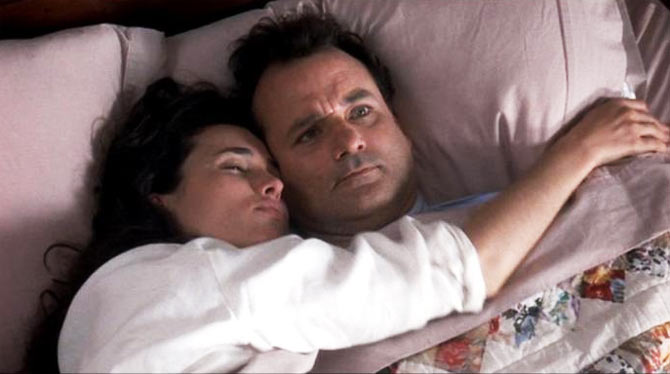Raja Sen
'He wrote movies that shaped different comedic fashions of their time, movies that inspired comedians to go out further on a limb, try harder, be more accessible, make their jokes land better.'
'It's hard to explain how much Harold Ramis mattered to us, and to the men who make us laugh.'
Raja Sen pays tribute to the late comedy legend.
There is a cycle, and the sight of a man falling from it is often hilarious.
Writing about it, on the other hand, is less so.
Explaining a joke -- especially a bit of timeless slapstick, as with the bicycle -- immediately renders it less funny; imagine the difference between reading a comedian's monologue and actually experiencing him hurl out the syllables at you, standing-up for his punchlines.
Given this ephemeral nature of comedy, which relies on so much from timing to delivery to context to flair, it is thus even harder to try and bottle down the impact and influence of a sparkling comic writer on generations that have grown up snickering at his words and his films.
It's hard to explain how much Harold Ramis mattered to us, and to the men who make us laugh.
Please ...
Harold Ramis: So Long, Beloved Ghostbuster
Image: Harold Ramis.Raja Sen
Ramis was a killer writer, a sharp and incisive satirist with a goofy good-naturedness amusingly at odds with his fanged barbs.
The balance made for movies that were almost entirely quotable and yet heartwarming, sometimes even inspiring.
The pithy rarely found such empathy, especially in Hollywood.
And so he wrote movies that shaped different comedic fashions of their time, like The National Lampoon Show, Meatballs, Caddyshack, Stripes right up to Analyze This which, despite its dated schtick, is fantastically funny.
These weren't just hit movies, or movies that turned actors into stars -- Bill Murray, for one, owes a lot to Ramis -- but they were movies that inspired comedians to go out further on a limb, try harder, be more accessible, make their jokes land better.
The ripple effect -- through comedic directors like Judd Apatow, Jake Kasdan and many others who openly call themselves disciple of Ramis -- has been coming to us ever since the late 1970s.
Like seismic giggles.
Please ...
Harold Ramis: So Long, Beloved Ghostbuster
Image: Harold Ramis, left, with John Cusack.Raja Sen
Asked about the way he captured the sensibility of the periods he wrote in, Ramis said in an interview, 'I don't know. I just did what I wanted to do and what interested me. As I tell writing students, the only thing you have that is unique is yourself.'
'You can write a movie that's like some other movies, and that's what you'll have: Something that's completely derivative. But the only thing that's totally unique is you. There's no one like you.'
'No one else has had your experience. No one has been in your body or had your parents. Yes, we've all had the same cultural influences. We've all lived at the same time, watched the same shows, gone to the same movies, listened to the same music.'
'But it's all filtered through our unique personalities. And I honor the things that have influenced me. I'm grateful for whatever it is that became the particular lens that's allowed me to put out what I have.'
Please ...
Harold Ramis: So Long, Beloved Ghostbuster
Image: Harold RamisRaja Sen
In 1984, Ramis co-wrote and starred in Ivan Reitman's Ghostbusters, a film where -- as parapsychologist Egon Spengler -- he won us over as the truly cool Ghostbuster.
For those of us who, in Goldilocks vein felt that Dan Ackroyd's Stantz was too silly, Ernie Hudson's Winston too overt and Bill Murray's Venkman too dry, it was Spengler who mattered: He was the George Harrison of the four.
While Ramis appeared in other films, it is his wonderful character in the two Ghostbusters movies that endures.
We were all charmed by Venkman, but Spengler is the one who made the Ghostbusters feel like a real team.
Please ...
Harold Ramis: So Long, Beloved Ghostbuster
Image: A scene from Groundhog DayRaja Sen
And then there's Groundhog Day, a Harold Ramis film about an infinite loop -- a lifetime of days that begin with Sonny and Cher on the radio and plod through the very same paces, over and over -- that will surely be remembered as the filmmaker's masterpiece.
The 1993 film is an absolute gem, with Bill Murray at his best and the film managing to keep rerunning around in circles and yet staying fresh -- yes, keeping repetitiveness fresh -- thanks to Ramis' deft, light touch.
It is the sort of film that priests and philosophers embraced, talking about its beautiful universality of theme, about life being a series of endless variations on the same, but it is also a truly funny film.
Something tells me that's what Ramis, who we lost at 69, would treasure more.
Just like he might appreciate a eulogy that begins where it ends, or something like it, anyway.
So long, beloved Ghostbuster.
Ashes to ashes, gags to gags. There is a cycle.






Comment
article